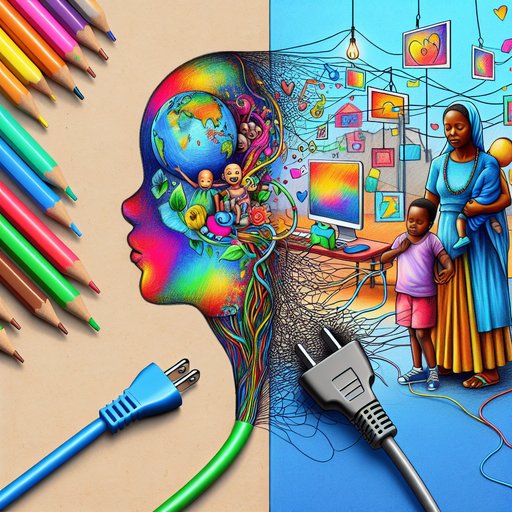- Details
- Written by: Valenenzia Gruelle

Melaka’s Graphytoon promises a small miracle: take a child’s crayon sketch and let artificial intelligence set it in motion, turning young art into animated stories [5]. The spectacle is delightful—and disarming. When software starts co‑authoring childhood, the core question isn’t merely what the algorithm can do, but who it serves, who it listens to, and who is left voiceless as daily life becomes a negotiation with code. In a world where whole populations still struggle for basic connectivity, the risks of exclusion are not abstract; African women, for example, have less access to the internet than men [1]. Graphytoon is a charming case with serious stakes: it asks whether we will design the next generation of creative tools as engines of inclusion or as silent editors of children’s imaginations.
- Details
- Written by: Anne Wienbloch

This week’s reading list from The Intercept is a worthy ritual—a reminder that ideas still matter, and that curiosity is a civic practice in an anxious era [7]. But if we keep our noses only in books, we risk missing the other syllabus being drafted in spray paint, wheatpaste, chalk, and sanctioned murals across our cities. Street art is where a community’s pulse flickers in public, where the body politic tries to heal itself in full view. Consider the reading list as theory and the street as peer review: together they tell us whether a city is flourishing, fragmenting, or finding a new grammar for belonging.
- Details
- Written by: Bob Fratenni

India mulling a low orbit satellite constellation for broadband services is more than a telecom story; it is a choice about what kind of society its signals will scaffold [6]. As an anthropologist, I read infrastructure as policy written in steel, spectrum, and shadows. Heat kills democratically, but policy often shields the wealthy first; red-lined neighborhoods map onto asphalt islands, and history bakes into concrete. If India’s constellation simply accelerates commerce without cooling the commons, it will beam inequality as efficiently as bandwidth. This moment invites a harder question: can a sky full of satellites lift the most heat-exposed streets, or will it only polish the penthouse? The answer will be decided not in orbit but in the algorithms, tariffs, and public obligations attached to every packet that crosses the night.
- Details
- Written by: Alex Dupcheck

Trump can’t stop America from building cheap EVs, and that is less a story about one politician than about how durable institutions outlast charismatic politics [4]. The real democratic test is whether complex, technical transformations are guided by expertise or buffeted by applause lines. Directly elected leaders are often selected for their ability to electrify rallies, not to design procurement rules, steward trade frameworks, or run evidence-based regulatory processes. The EV race exposes a broader democratic fault: when selection rewards emotional resonance over demonstrated competence, populism flourishes, policymaking lurches, and yet the machinery of law, trade, and regulation keeps grinding forward—if we let it [4].











































